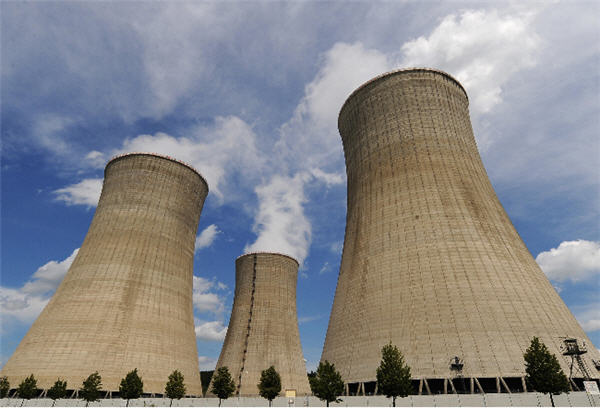Every American schoolchild learns about the value of the free marketplace. The thrust is that markets create optimal outcomes through a balance in the supply of goods and the demand for them. But there are some serious problems with this sunny view, like how the effects of today’s economic decisions may stretch over long spans into the future. I may decide to turn up the AC based on its cost to me this afternoon, but costs to others aren’t included—like worsening the asthma of a kid living near a coal-fired power plant. These costs, falling on folks who aren’t involved in a transaction, are called “externalities” in economic literature. That includes future generations who have no voice in any decisions made today, since distant future effects are not part of market calculations. And those future effects can be pretty big.
| Crop failure, severe weather, rising sea levels, the loss of biodiversity—these and other forms of environmental collapse throw a harsh light on the “freedom” of the free market. |
The scientific consensus has found intergenerational and longer-term effects to be a basic ramification of the warming climate. The market decisions that elevate carbon emissions today may account for the preferences of today’s consumers and industry actors, but clearly not the will of our descendents—our great-grandkids will have their freedom seriously constrained by the long-term affects of today’s lightly-taken personal consumer decisions.
The consensus anticipates a serious decrease in global production of several basic commercial crops, the much-discussed increase in severe weather, and a conservative expectation of a sea-level rise costing between 5 and 10 percent of GDP. These are long-term impacts that our deregulated, neoliberal marketplace is not building into sticker prices.
Looking to the poorest and most vulnerable populations, serious drought in southern Africa and rising water stress in Asia are also confidently predicted by the river of scientific publications on the subject, including the last report from the Intergovernmental Panel on Climate Change (IPCC).
Of course, the entire climate consensus is resisted by the energy industry, a few scientists on its payroll (or the payroll of a favored foundation), and commercial media. However reviews of climatology publications have found that among peer-reviewed papers expressing a position, 97 percent support the anthropogenic origin of climate change.
With a new report due within a year from the conservative IPCC, we can expect more detail on these multi-decade-or-longer time frames. While we may decide today that the increased wealth generated by our energy-industry emissions is worth the future cost of those emissions, it is important to recall that the emitted CO2 not absorbed by the oceans has a mean atmospheric lifetime of hundreds of years.
Another aspect of the market’s intergenerational tyranny is visible in the nuclear energy industry. Today the industry is in some decline as the growth of gas fracking has forced down energy prices and made many reactors unprofitable. But the nuclear industry remains probably the clearest example of the wild disconnect between current benefits and future costs.
While the fuel mix varies among different generations and models of reactors, nuclear wastes produced through their operation have half-lives measured in hundreds of thousands or millions of years, leaving the waste itself deadly for anywhere from centuries to hundreds of millennia. Engineers designing geologic storage for this waste are therefore contemplating durable structural warnings for future societies, to discourage investigation of the poisonous underground complexes by almost-inconceivably chronologically distant peoples.
Future generations of Americans will feel the long-run effects, just as we do today. The easiest way to anticipate this is through the issue of biodiversity—the enormous range of living organisms in the world’s habitats. Biodiversity has been in broad decline for centuries, driven by many factors but particularly human activity “developing” natural habitat. This loss of biodiversity, through species extinctions, is permanent loss of inherent natural value, and also has serious effects on human freedom. How free are we to view a Saudi Gazelle or a Steller’s sea cow? The loss of a few photogenic species may seem trivial, however scientists refer to the present scale of species loss as a “biodiversity crisis” and some are proposing that the growing scale of human economic activity is on course to create a new mass extinction, if current rates persist. We are economically richer for the capital generated from consumption of habitat and hunted down breeding stock, but how much of today’s wealth would we be willing to give up to see again the extinct Tasmanian Tiger?
All this throws a harsh light on the “freedom” of the market.
We are not free to enjoy lost biodiversity due to past market decisions, nor will our kids and descendents be free to enjoy natural systems that have been degraded or lost thanks to our decision to drive to work today. Economists will counter that wealth is also generated by these decisions, so future generations will have more money to deal with these problems. But most economists won’t mention that if this wealth continues to be distributed as it is in today’s neoliberal era, the gains will be captured by the top few percent, whereas the lost species, deteriorating climate, and radioactive water will be everyone’s headache.
Rob Larson is Instructor of Economics at Tacoma Community College in Washington state. He is the author of Bleakonomics: A Heartwarming Introduction to Financial Catastrophe, the Jobs Crisis and Environmental Destruction.




0 Comments